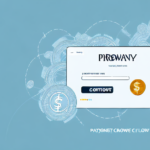Understanding Payment Gateways in E-commerce
In the realm of e-commerce, a payment gateway serves as a vital bridge between your online store and the financial institutions that process customer transactions. It ensures that sensitive financial data is securely transmitted, enabling seamless and trustworthy transactions. This comprehensive guide delves into the intricacies of payment gateways, exploring their functionality, types, selection criteria, and their pivotal role in enhancing your business operations.
How Payment Gateways Operate
The Transaction Process
Payment gateways facilitate transactions through a multi-step process designed to ensure security and efficiency:
- Transaction Initiation: When a customer proceeds to checkout, the payment gateway encrypts their payment details, safeguarding information like credit card numbers and billing addresses.
- Authorization: The encrypted data is transmitted to the payment processor, which verifies the customer's account and available funds. According to Statista, the rise in online payment fraud underscores the necessity for robust security measures.
- Funding: Upon successful authorization, funds are transferred from the customer's account to the merchant's account, and a confirmation message is relayed to the customer.
Security Measures
Payment gateways incorporate advanced security features such as SSL encryption, tokenization, and compliance with the PCI Security Standards Council guidelines to protect against data breaches and fraud.
Types of Payment Gateways
Hosted Payment Gateways
Redirect customers to a payment page hosted by the provider, ensuring that payment information is collected securely on their servers.
Self-hosted Payment Gateways
Integrate directly into your website, offering complete control over the payment process but requiring stringent security measures.
Integrated Payment Gateways
Combine the benefits of both hosted and self-hosted gateways, providing a seamless and secure payment experience within your website.
Mobile Payment Gateways
Enable transactions via mobile devices using technologies like NFC or QR codes, catering to the growing number of mobile shoppers.
Choosing the Right Payment Gateway
Key Features to Consider
- Security: Ensure the gateway employs SSL encryption, tokenization, and complies with PCI DSS standards.
- Transaction Fees: Compare the percentage and fixed fees to understand the cost implications for your business.
- Integration: Look for gateways that offer easy integration with your e-commerce platform through APIs or plugins.
- Customer Support: Reliable and responsive support is crucial for resolving any transaction issues swiftly.
- Payment Options: Support for multiple payment methods and currencies can attract a broader customer base.
Popular Payment Gateways Compared
Several payment gateways stand out in the market, each with unique strengths:
- PayPal: Renowned for its wide acceptance and consumer trust.
- Stripe: Favored for its developer-friendly APIs and customization capabilities.
- Braintree: Offers seamless integration with mobile and web applications.
- Authorize.net: Known for its robust security features and reliable support.
- Square: Ideal for small businesses with its simple setup and point-of-sale solutions.
Evaluating these gateways based on your business needs, transaction volume, and technical capabilities will help you make an informed decision.
Integrating Payment Gateways into Your Online Store
Seamless Integration
Integrating a payment gateway with your e-commerce platform should be straightforward. Most providers offer plugins or extensions for popular platforms like Shopify, WooCommerce, and Magento, facilitating easy setup without extensive technical knowledge.
Enhancing User Experience
A smooth checkout process is crucial for reducing cart abandonment rates. Features such as one-click checkout, saved payment information, and a mobile-optimized interface enhance the overall user experience.
Testing and Optimization
Before fully deploying your payment gateway, conduct thorough testing to ensure all aspects function correctly. This includes processing test transactions, verifying security measures, and optimizing load times to handle high traffic volumes.
Ensuring Security and Compliance
Implementing Robust Security Measures
- SSL Encryption: Protects data transmission between your website and the payment gateway.
- Tokenization: Replaces sensitive data with unique tokens, minimizing the risk of data breaches.
- PCI DSS Compliance: Adhering to these standards is mandatory for safeguarding payment information.
- Regular Security Audits: Periodic reviews help identify and address potential vulnerabilities.
Maintaining stringent security protocols not only protects your business and customers but also builds trust and credibility in the marketplace.
Fraud Prevention Tools
Utilize features such as address verification, card verification, and AI-driven fraud detection to mitigate the risk of fraudulent transactions. According to a report by PWC, implementing comprehensive fraud prevention strategies can significantly reduce financial losses and enhance customer trust.
Future Trends in Payment Gateway Technology
Rise of Mobile and Contactless Payments
The increasing use of smartphones has accelerated the adoption of mobile payment solutions like Apple Pay and Google Wallet, offering convenience and speed to consumers.
Integration of Cryptocurrency
With the growing popularity of digital currencies, some payment gateways are beginning to accept cryptocurrencies, catering to a niche but expanding market segment.
Advanced Security Technologies
Emerging technologies such as biometric authentication and artificial intelligence-driven fraud detection are setting new standards for transaction security.
Enhanced E-commerce Platform Integration
Payment gateways are evolving to offer more seamless integrations with a variety of e-commerce platforms, streamlining the payment process and improving the overall user experience.
Staying abreast of these trends allows businesses to leverage new technologies, stay competitive, and meet evolving consumer expectations.
Best Practices for Maximizing Payment Gateway Efficiency
Optimize the Checkout Experience
- Streamlined Process: Reduce the number of steps in the checkout process to minimize potential drop-offs.
- Clear Instructions: Provide straightforward guidance to help customers navigate the payment process effortlessly.
- Multiple Payment Options: Offer a variety of payment methods and currencies to accommodate diverse customer preferences.
Maintain Transparent Fee Structures
Clearly communicate all transaction fees and charges to avoid unexpected costs that could deter customers. Regularly review and compare fee structures to ensure you are optimizing your costs.
Provide Excellent Customer Support
Ensure your team is equipped to handle payment-related inquiries promptly and effectively. Offering reliable customer support enhances trust and can resolve issues that might otherwise lead to lost sales.
Leverage Data Analytics
Utilize real-time transaction data and analytics to gain insights into customer behavior, identify trends, and make informed business decisions that drive growth.
Conclusion
Payment gateways are indispensable in the e-commerce ecosystem, providing the necessary infrastructure and security for online transactions. Selecting the right payment gateway involves evaluating factors such as security features, transaction fees, integration capabilities, and customer support. By implementing best practices and staying informed about industry trends, businesses can enhance their payment processes, increase sales, and build lasting customer relationships. Investing in a reliable and efficient payment gateway is a strategic move that can significantly contribute to the success and scalability of your online business.




















